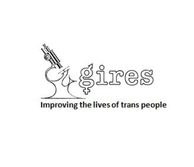Research Associate in Microbiomics and Metabonomics (2 posts)
Job summary
We are looking to appoint a Research Associate in Microbiomics and Metabonomics to join Dr Julie McDonald’s laboratory within the Department of Life Sciences and the and the Centre for Bacterial Resistance Biology (CBRB) at Imperial College London. The CBRB is a centre of excellence housing several groups studying the microbiome, antimicrobial resistance, bacterial physiology and pathogenesis, and host immunity. The McDonald laboratory works...
Job listing information
- Reference NAT01636
- Date posted 24 January 2024
- Closing date 21 February 2024
Job description
Job summary
We are looking to appoint a Research Associate in Microbiomics and Metabonomics to join Dr Julie McDonald’s laboratory within the Department of Life Sciences and the and the Centre for Bacterial Resistance Biology (CBRB) at Imperial College London. The CBRB is a centre of excellence housing several groups studying the microbiome, antimicrobial resistance, bacterial physiology and pathogenesis, and host immunity.
The McDonald laboratory works on understanding how the gut microbiota protects the host against intestinal colonisation with pathogens (“colonisation resistance”). This project will investigate mechanisms of colonisation resistance against multidrug-resistant pathogens, with the aim to develop a novel microbiome therapeutic to inhibit multidrug-resistant pathogen growth. We are looking for a researcher with experience in both bench side microbiology and bioinformatics.
Candidates interested in the gut microbiome, multidrug-resistant pathogens, and colonisation resistance are encouraged to apply.
Duties and responsibilities
You will be expected to perform the outlined experiments to a high standard. In particular you will be expected to:
- Perform culture-dependent techniques to analyse the gut microbiota, e.g. ex vivo artificial gut model experiments, ex vivo faecal culture experiments, axenic culture and co-culture of multidrug-resistant pathogens and fastidious gut anaerobes, and other microbiology techniques.
- Perform culture-independent techniques, including metataxonomics, metagenomics, and metabonomics.
- Conduct data analysis, including bioinformatic analysis of the resulting omics data sets.
You will also be expected to:
- Acquire, analyse, and interpret research data and results.
- Ensure the validity, reliability, and reproducibility of data at all times.
- Maintain accurate and complete records of all findings.
- Back up and document research data in a way that is accessible to all lab members.
- Prepare material for presentation in oral and poster formats.
- Present findings to colleagues and at conferences.
- Assist in the drafting of publications for submission to refereed journals.
- Contribute to writing research grant applications.
- Take initiative in the planning of research.
- Prioritise tasks within agreed work schedule.
- Help train students and others associated with the lab in general scientific approaches and specific experimental techniques.
- Contribute to the development of experimental techniques, models, and methods.
- Attend relevant workshops and conferences as necessary.
- Develop contacts and research collaborations within the College and the wider community.
- Help maintain a laboratory environment that is interesting, pleasant, and conducive to high-level experimental work.
- Direct the work of small research teams including undergraduate and postgraduate students.
- Take responsibility for organising resources and effective decision making in support of research.
Essential requirements
You must hold, or be near completion of, a PhD degree (or equivalent) in Microbiome, Bioinformatics, Microbiology, or related disciplines.
You must be able to demonstrate significant experience in the following areas:
- Working with models of the gut microbiota.
- Handling anaerobic microbes, especially gut microbes.
- Using culture independent “omic” methods to characterise microbial communities.
- Analysing omics data sets and bioinformatic data analysis.
It is essential that you have:
- The ability to work as part of a team and be open minded and cooperative.
- Excellent verbal and written communication skills.
- The ability to write clearly and succinctly for publication.
- The ability to develop and apply new concepts and have a creative approach to problem solving.
- The ability to organise your own work with minimal supervision and prioritise in response to deadlines.
Further information
This is a full time, fixed-term position for three years. You will be based at the South Kensington Campus.
Two positions are available, one to start in March 2024 and one in May 2024.
Candidates who have not yet been officially awarded their PhD will be appointed as a Research Assistant.
Informal enquiries can be made directly to Dr Julie McDonald, Lecturer in the Department of Life Sciences at julie.mcdonald@imperial.ac.uk
The College is a proud signatory to the San-Francisco Declaration on Research Assessment (DORA), which means that in hiring and promotion decisions, we evaluate applicants on the quality of their work, not the journal impact factor where it is published. For more information, see https://www.imperial.ac.uk/research-and-innovation/about-imperial-research/research-evaluation/
The College believes that the use of animals in research is vital to improve human and animal health and welfare. Animals may only be used in research programmes where their use is shown to be necessary for developing new treatments and making medical advances. Imperial is committed to ensuring that, in cases where this research is deemed essential, all animals in the College’s care are treated with full respect, and that all staff involved with this work show due consideration at every level. http://www.imperial.ac.uk/research-and-innovation/about-imperial-research/research-integrity/animal-research/
Documents
About Imperial College London
Imperial College London is the UK’s only university focussed entirely on science, engineering, medicine and business and we are consistently rated in the top 10 universities in the world.
You will find our main London campus in South Kensington, with our hospital campuses located nearby in West and North London. We also have Silwood Park in Berkshire and state-of-the-art facilities in development at our major new campus in White City.
We work in a multidisciplinary and diverse community for education, research, translation and commercialisation, harnessing science and innovation to tackle the big global challenges our complex world faces.
It’s our mission to achieve enduring excellence in all that we do for the benefit of society – and we are looking for the most talented people to help us get there.
Additional information
Please note that job descriptions cannot be exhaustive, and the post-holder may be required to undertake other duties, which are broadly in line with the above key responsibilities.
Imperial College is committed to equality of opportunity and to eliminating discrimination. All employees are expected to follow the Imperial Values & Behaviours framework. Our values are:
- Respect
- Collaboration
- Excellence
- Integrity
- Innovation
In addition to the above, employees are required to observe and comply with all College policies and regulations.
We are committed to equality of opportunity, to eliminating discrimination and to creating an inclusive working environment for all. We therefore encourage candidates to apply irrespective of age, disability, marriage or civil partnership status, pregnancy or maternity, race, religion and belief, gender reassignment, sex, or sexual orientation. We are an Athena SWAN Silver Award winner, a Disability Confident Leader and a Stonewall Diversity Champion.
For technical issues when applying online please email support.jobs@imperial.ac.uk.
Awards

Top 10 Employer for Working Families
Top 10 employer for working families

Race Equality Charter Bronze Award
Race Equality Charter Bronze Award

Disability Confident leader
Imperial is a Disability Confident leader











